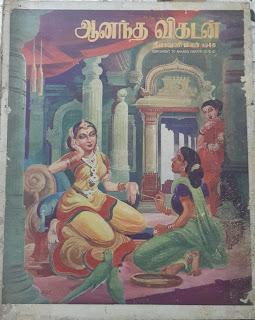Portuguese Santhome in 16th century
The Portuguese colonised Santhome around 1523. The population of the settlement increased from 60 families in 1538 to 100 in 1543. Around 1546 there were 500 Portuguese in Santhome with their slaves. In 1635 there were 120 white Casados (Portuguese families) and 200 black Casados (Tamil Christians). There were 600 Portuguese Mesticos(Children of Portuguese Men and Native women ).
Mestico women were very little seen in the public and mostly they spent their time within the house because of the domestic orientation in which they have lived for centuries in India . These Mestico women went out seldom unless it be to Church or to visit their friends. Whenever they went out they were well provided so as to not to be seen for they were carried in Palanquin covered with a mat or cloth. They used to put on costly dress with bracelets of Gold, rings upon their fingers and arms beset with costly gems and pearls. Their clothes were of damask, velvet and cloth of gold, for silk was the worst thing they wore. Within the house they went bare headed with a waist coat, from their shoulder covered upto their navels and downwards they had a painted cloth wrapped three or four times about their bodies. These cloths were costly with loom work and flowers of all colours. This was their manner of dress in the house both the old and young, rich and poor because they went out very little.
The present Prime Minister of Portugal Antonio Costa is also a Mestico partly Goan from his father side.
Source : Caste, Catholic Christianity and the Language of Conversion by Jeyaseela Stephen
Mestico women were very little seen in the public and mostly they spent their time within the house because of the domestic orientation in which they have lived for centuries in India . These Mestico women went out seldom unless it be to Church or to visit their friends. Whenever they went out they were well provided so as to not to be seen for they were carried in Palanquin covered with a mat or cloth. They used to put on costly dress with bracelets of Gold, rings upon their fingers and arms beset with costly gems and pearls. Their clothes were of damask, velvet and cloth of gold, for silk was the worst thing they wore. Within the house they went bare headed with a waist coat, from their shoulder covered upto their navels and downwards they had a painted cloth wrapped three or four times about their bodies. These cloths were costly with loom work and flowers of all colours. This was their manner of dress in the house both the old and young, rich and poor because they went out very little.
The present Prime Minister of Portugal Antonio Costa is also a Mestico partly Goan from his father side.
Source : Caste, Catholic Christianity and the Language of Conversion by Jeyaseela Stephen




Comments